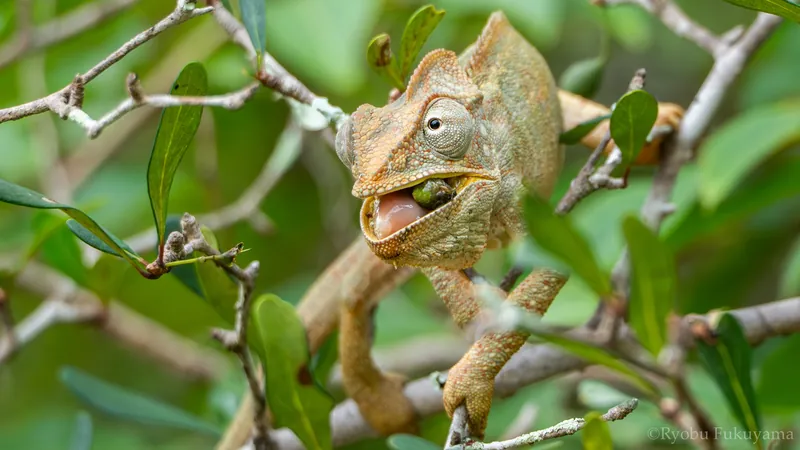
Lizards Unveiled as Unsung Heroes of Seed Dispersal in Madagascar's Unique Ecosystem
2025-06-09
Author: Wei
Did you know that Madagascar, a treasure trove of biodiversity, has been evolving in isolation for 88 million years since drifting away from India? This enchanting island is home to a range of unique flora and fauna, making it one of the most extraordinary ecosystems on the planet.
The Hidden Role of Endozoochory
A fascinating process known as endozoochory plays a significant role in this biodiversity. It refers to the way animals consume plant seeds and later excrete them in different locations, thus aiding plant proliferation. While much of the research has highlighted birds and mammals as critical seed dispersers, lizards have surprisingly been left out of the spotlight.
Kyoto University Shines a Light on Lizards
Motivated by this oversight, researchers from Kyoto University have taken it upon themselves to explore the vital role of lizards in seed dispersal. It turns out that, unlike many seed dispersers, lizards don't typically feast on fruits; fewer than 10% of lizard species are known to consume them. Yet, those that do could have a substantial impact on their ecosystem, serving as primary seed dispersers for various plant species.
"Lizards are frequently overlooked as seed dispersers in diverse ecosystems, but we believe they may hold more significance across different regions than previously recognized," says Ryobu Fukuyama, the study's corresponding author.
Groundbreaking Research in Madagascar's Tropical Dry Forest
In their groundbreaking study published in Biotropica, the team observed three specific lizard species—the Malagasy Giant Chameleon, Cuvier's Madagascar Swift, and the Western Girdled Lizard—while conducting behavioral analysis, fecal studies, and seed germination tests in Madagascar's tropical dry forest.
Their findings revealed these lizards munching on fruits from over 20 distinct plant species, successfully dispersing seeds that were not just typical of their well-known primate counterparts, the Common Brown Lemur. This implies a potential ecological significance that had been previously underestimated.
Lizards: The Resilient Seed Dispersers of Tomorrow
The significance of this research extends beyond merely recognizing lizards' contributions. The beautiful forests of Madagascar are under siege from environmental degradation due to human activities, leaving some habitats unsuitable for larger fruit-eating mammals like lemurs. However, these resilient lizard species can flourish in such degraded environments.
As they continue to spread seeds, these lizards may play a crucial role in the regeneration of Madagascar's forests—an ecosystem desperately in need of restoration. While we’ve only scratched the surface of understanding their impact, the findings indicate that these little creatures may hold the key to the future of Madagascar's unique ecosystems.


 Brasil (PT)
Brasil (PT)
 Canada (EN)
Canada (EN)
 Chile (ES)
Chile (ES)
 Česko (CS)
Česko (CS)
 대한민국 (KO)
대한민국 (KO)
 España (ES)
España (ES)
 France (FR)
France (FR)
 Hong Kong (EN)
Hong Kong (EN)
 Italia (IT)
Italia (IT)
 日本 (JA)
日本 (JA)
 Magyarország (HU)
Magyarország (HU)
 Norge (NO)
Norge (NO)
 Polska (PL)
Polska (PL)
 Schweiz (DE)
Schweiz (DE)
 Singapore (EN)
Singapore (EN)
 Sverige (SV)
Sverige (SV)
 Suomi (FI)
Suomi (FI)
 Türkiye (TR)
Türkiye (TR)
 الإمارات العربية المتحدة (AR)
الإمارات العربية المتحدة (AR)